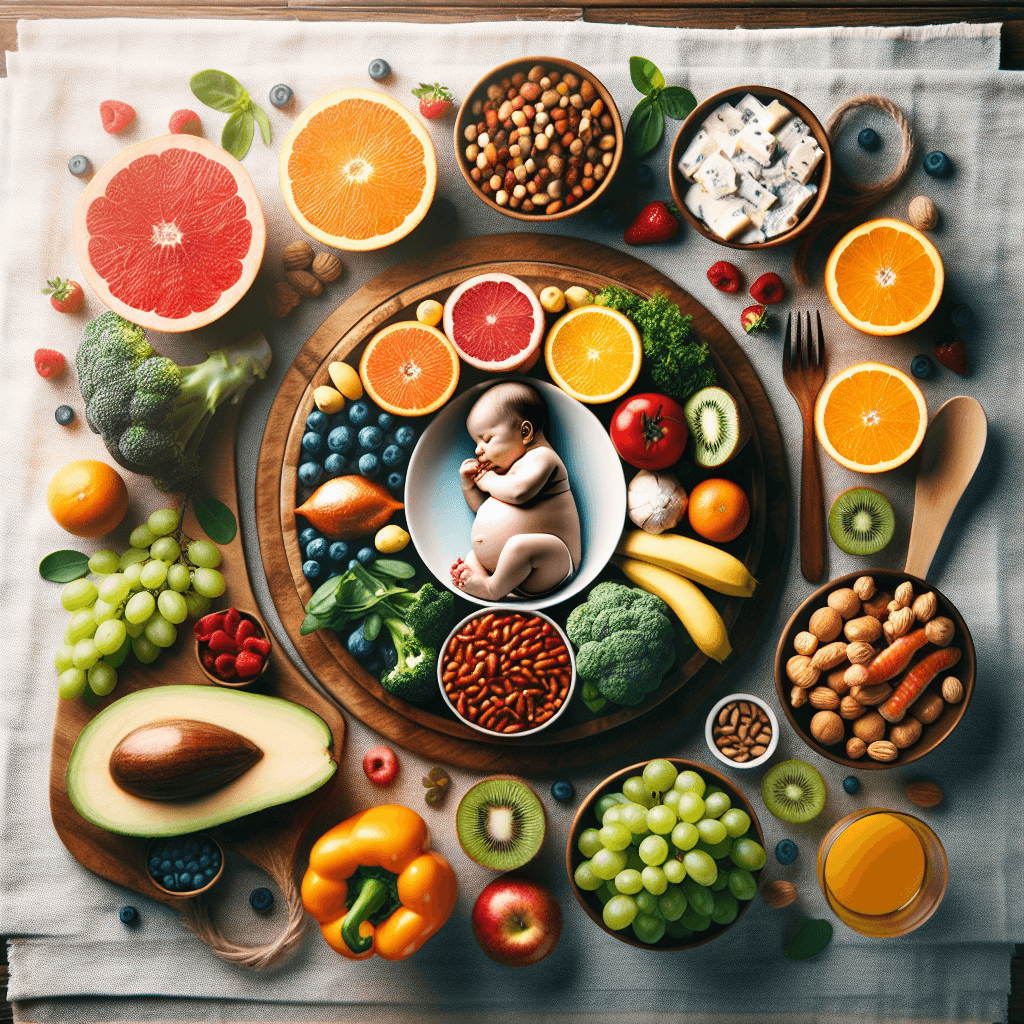Essential Pregnancy Foods for Complete Nutrients
Introduction Pregnancy is a time of transformation and development for both the mother-to-be and her baby. At this crucial stage, nutrition plays an essential role in ensuring a complete intake of nutrients necessary for the health and optimal development of the fetus. This article will guide expectant mothers on the most important recommended foods and nutrients during pregnancy.
1. Omega-3 Fatty Acids Omega-3s are essential fatty acids, especially DHA (docosahexaenoic acid), which contribute to the development of the baby's brain and nervous system. Omega-3 rich sources include fish such as salmon and sardines, and flax or chia seeds. Eating these foods 2-3 times a week is beneficial for both mother and child.
2. Proteins Proteins are the building blocks of tissue development and are essential in the structure of new cells. Excellent sources of protein include lean meats, chicken, eggs, dairy products, nuts and legumes. For example, lentils can be a unique and vegetarian source of protein, being ideal for salads or soups.
3. Iron Iron is crucial in pregnancy as it helps prevent anemia and supports placental and fetal development. Red meat, dried fruit, spinach and fortified cereals are excellent sources of iron. It is recommended that iron be consumed with vitamin C for improved absorption.
4. Calcium Calcium helps build the baby's skeleton and keeps the mother's bones and teeth healthy. Sources of calcium include milk, yogurt, cheese, broccoli, and sesame seeds. Eating calcium-fortified cereal can also be a good option for breakfast.
5. Vitamins A number of vitamins, such as vitamin D, A, C and E, are also essential. For example, vitamin D is important for regulating calcium and phosphorus levels in the blood. Natural sources of vitamin D include sun exposure and eating fatty fish or eggs. Prenatal multivitamins may also be recommended by your doctor to supplement any possible deficiencies.
6. Fibers Fiber is important for maintaining a healthy digestive system and preventing constipation, a common problem in pregnancy. Foods high in fiber include vegetables, fruits, whole grain breads and whole grains. Adequate water consumption is also vital to maximizing the benefits of fiber.
7. Liquids Hydration is essential during pregnancy to support increased blood volume, amniotic fluid production and to prevent dehydration. Water is the best choice, but natural juices, milk and decaffeinated drinks are acceptable in moderation.
Conclusion Nutrition during pregnancy must be well balanced and rich in specific nutrients to support the harmonious and healthy development of the child and to maintain the health of the mother. Regularly including foods rich in Omega-3, protein, iron, calcium, vitamins, fiber and ensuring adequate hydration will contribute to a smooth pregnancy and a healthy newborn. For any concerns or personalized recommendations, it is important to consult a doctor or nutritionist. Remember, proper nutrition starts with you, and your little ones deserve the best start in life. Subscribe to our newsletter for more resources and helpful tips for you and your family.



















































































































































